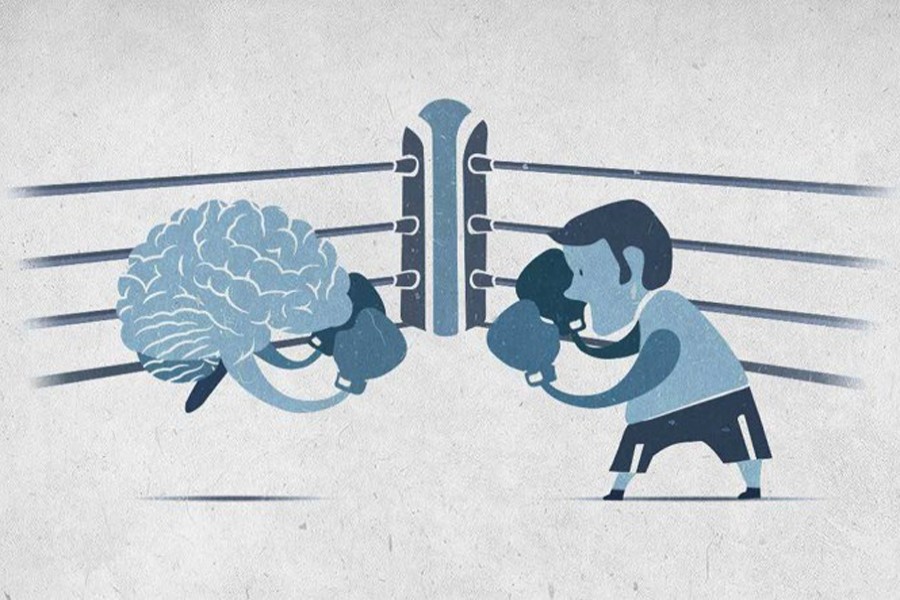Scientists have revealed the neural basis for people with resolution and who managed to lose weight successfully, according to a study published on Thursday in the journal Cell Metabolism.
Canadian researchers found that higher-level brain functions had a major role in losing weight, as the study participants at a weight-loss clinic who effectively lost weight showed more activity in the brain regions of the lateral prefrontal cortex associated with self-control.
"What we found is that in humans, the control of body weight is dependent largely on the areas of the brain involved in self-control and self-regulation," said Alain Dagher from the Montreal Neurological Institute and Hospital in Canada.
"That area of the brain has the ability to take into account long-term information, such as the desire to be healthy, in order to control immediate desires," said Dagher.
Two hormones, leptin and ghrelin, are known to trigger the body to eat in a weight-loss setting and previous research confirmed that these hormone levels change rapidly when weight had been shed.
"Everybody who loses weight sees this change in leptin and ghrelin," said Dagher. "It is just that some people, for reasons we do not know, are able to maintain their self-regulation in the face of that signal."
The researchers studied 24 subjects from a weight-loss clinic.
Prior to starting a standard 1,200 kcal/day weight-loss diet, all participants received a functional MRI study of the brain, which assessed regions including the lateral prefrontal cortex, which is linked with self-regulation, and the ventral medial prefrontal cortex, a brain area involved in motivation, desire, and value.
Subjects were shown pictures of appetising foods as well as control pictures of scenery. Then the researchers compared the brain activity response to the high-calorie food pictures, for each subject at baseline, one month, and three months.
"Upon showing pictures of mouth-watering foods, the ventral medial prefrontal cortex area becomes more active on fMRI," said Dagher.
During the study, researchers noted that at one month and three months, the signal from the ventral prefrontal cortex went down, and it declined the most in people who were more successful at losing weight.
Also, the lateral prefrontal cortex signal involved in self-control increased throughout the study, reports Xinhua.
While all participants lost weight, those who achieved the greatest weight loss had fMRI levels indicating a better ability to self-control.
"These results suggest that weight loss treatments that increase self-control, such as cognitive behavioural therapy, may be helpful," said Dagher.


